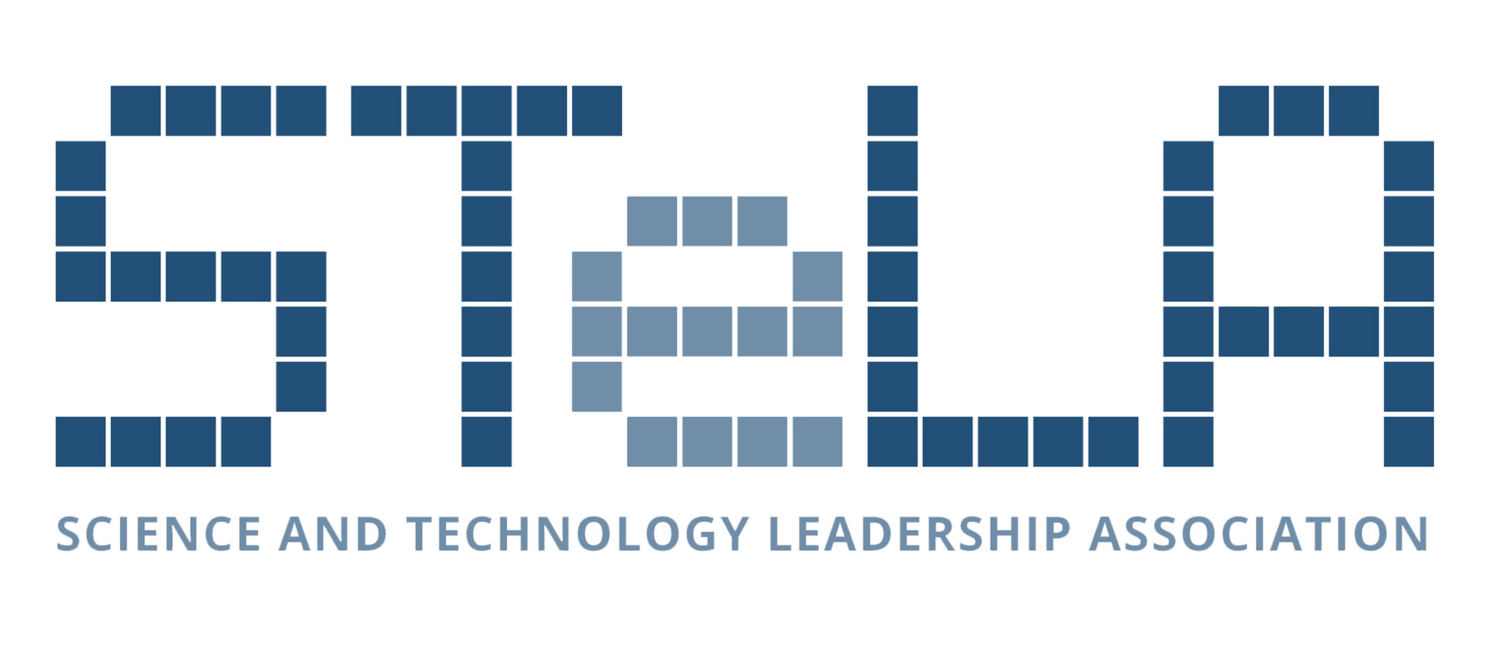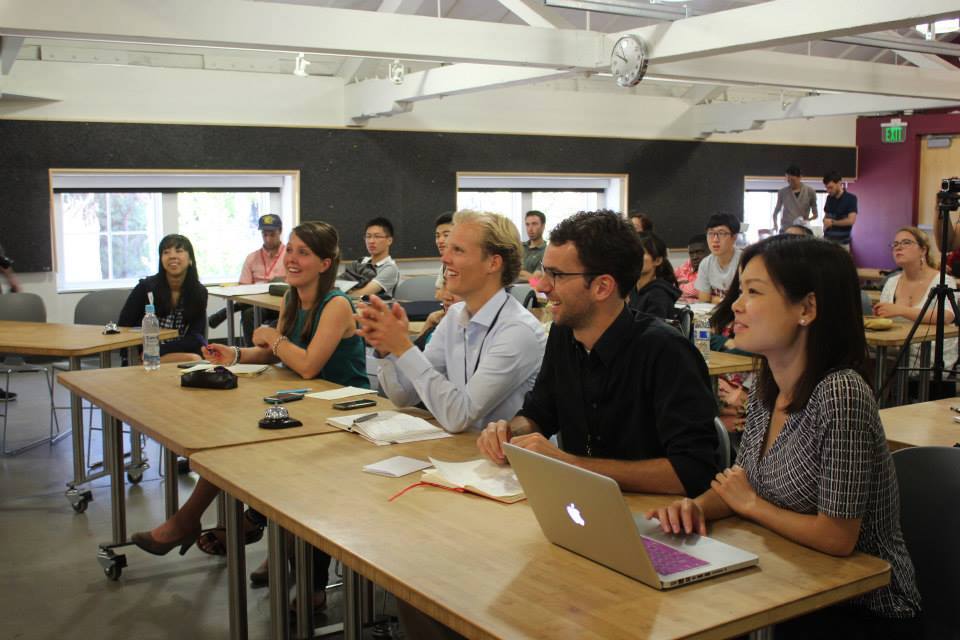2014's forum was held at Stanford University in the United States. 50 students from around the world were chosen to participate. We had students at Bachelor's, Master's, and PhD level. There were people from Nigeria, The United Arab Emirates, The Netherlands, Norway, The United States, France, Switzerland, England, China, Japan, Indonesia, and many more - just to mention some. It was a rich multicultural experience where the students shared a lot about their countries, culture, what kind of music they liked and their countries' history. The students were divided into groups where each branch (U.S, Europe, China and Japan) was represented. It was a different experience for many, to work with people from different cultures, and we all learned so much from it.
At Stanford we had, among others, the wonderful Manu Prakash as one of our key note speakers, as well as Hank Greely. Mr. Prakash talked about foldscope, a microscope that costs less than 1 USD to make, and how important education is in developing countries. Hank Greely talked about bioethics and challenged our point of view on biotechnology, and the impact it might have on our lives. We had several lectures about leadership, teamwork and also relations, in order to be more understanding and respectful of another person's point of view. There was also a final group project where the students had to design an educational board game about a topic related to the forum's theme like personal genomics, vaccinations, health and nutrition, and medical drugs.
SUB-THEMES
The theme of the Forum was split into four sub-themes: modifying organisms, health informatics, personal genomics and frugal innovation. During the thematic sessions each of these fields were briefly introduced before we got the opportunity to experience the problems and practice the leadership theories while solving them.
Modifying organisms
“I not only think that we will tamper with Mother Nature, I think Mother wants us to ”
As you read this, organisms are being manipulated in labs all over the world for industrial, agricultural and commercial purposes. Microbes are being engineered to make bio-fuels, mice for medical studies and potatoes that are resistant to pests. There has even been research in engineering humans in the field of trans-humanism. Even with the advantages and contributions to technology and society that modified organisms can provide, there are many ethical issues associated or barriers imposed by public policy. For example, genetically modified foods can be the solution to world hunger but strains are hardly ever approved for commercial production.
The purpose of this session was to bridge the lack of understanding of what exists on the lab bench and what is the situation in the real world. We discussed questions such as, 'What are the ethical implications of this technology? Nature provided us the tools to engineer but how far can we take it?'
Health informatics
An important factor to healthcare improvement involves health informatics. Currently medical records are kept in a mixture of paper and computer technology. The communication between clinics, private practices, hospitals and other healthcare institutions use different systems to store and send data. Many software companies have an interest to streamline this process. The vision that biomedical engineers have is to create a global system that stores medical and environmental data, which can be accessed and delivered accurately and efficiently. This can improve the care of individual patients, help address public health emergencies including global pandemics, and help better prepare against chemical and biological warfare.
In this session, participants experienced a simulated chaos of a special case of providing healthcare to a patient. It is key that the participants apply what they learned during the leadership workshops in order to successfully finish this session.
personal genomics
Personal genomics is a field of rapidly developing technology that will soon empower modern society with the ability to analyze individual genomes accurately and cheaply. Understanding genetics can help engineers design personalized medicines, which would be more effective than giving medicine that has a broad range of effects for different patients. Already within the last ten years, the cost of sequencing some 40,000 human genes has dropped dramatically, costing approximately $100 million in the early 2000s and with a target goal of $1000 in 2014. Extensively sequencing the genome may lead to a better understanding of genetically rooted diseases, such as poly-cystic kidney disorder or cystic fibrosis, and how to prevent them. However, some commercial sequencing companies interpret genetic results in different ways, leading to conflicting conclusions about the probabilities of diseases. Increasing knowledge may also lead to further manipulation of the human condition.
This session was designed to help participants think about questions such as: Should parents have children with knowledge of their potential health statistics? Does raising a family have the potential of becoming a design process rather than random combinations of parents' chromosomes? Should we base how we live our lives on our genes?
Frugal innovation
The term frugal innovation means inventing what is needed by utilizing what is available. For example, Africa has replaced barley with sorghum to produce cheaper beer and in the Philippines bottles with water and bleach in a roof can provide light as a light bulb. While an important and revolutionary concept for developing countries, frugal innovation can be practiced anywhere to introduce sustainable technologies for anybody.
In this session we focused on how this practice can help the healthcare industry and we encouraged participants to use their creativity to dream up new, crazy, innovative technologies that can be used all over the world.
Site visit: Genentech's south San Francisco campus
Genentech Inc., is a biotechnology corporation, founded in 1976 by venture capitalist Rober A. Swanson and biochemist Dr. Herbert Boyer. Boyer is considered to be a pioneer in the field of recombinant DNA technology. In 1973, Boyer and his colleague Stanley Norman Cohen demonstrated that restriction enzymes could be used as ''scissors'' to cut DNA fragments of interest from one source, to be ligated into a similarly cut plasmid vector. While Cohen returned to the laboratory in academia, Swanson contacted Boyer to found the company. After a meeting in 1976, the two decided to start a biotechnology company, Genentech. Boyer and the colleagues first successfully expressed a human gene in bacteria when they produced the hormone somastostatin in 1977. The group then succeeded to generate synthetic human insulin in 1978. Today, Genentech is among the world's leading biotech companies, with multiple products on the market and a promising development pipeline.
Genentech became a member of the Roche Group, a Swiss global health-care company, in 2009. As part of their merger agreement, Roche and Genentech combined their pharmaceutical operations in the United States. Genentech's South San Francisco campus now serves as the headquarters for Roche pharmaceutical operations in the United States. The site visit tour walked participants through the end-to-end process of making a drug product at Genentech, including the cell culture and purification area.
Genentech's









